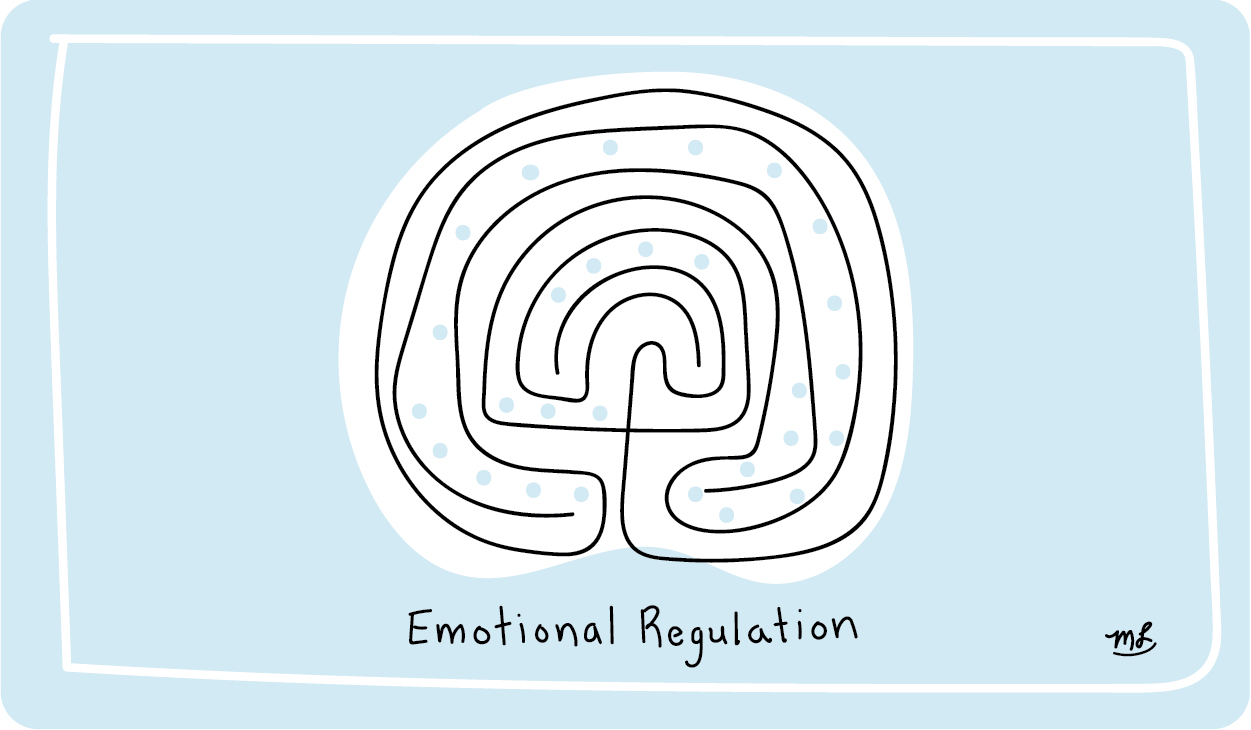“The lack of ability to self-regulate is an alarm-driven Toddler brain – where we’re likely to retreat under stress.”
You know after a stressful day at work, something simple sets you off, you snap and find yourself saying something in the heat of the moment, often towards someone you love. Or perhaps you are at work, and someone bumps into you, your emotions start to bubble up inside and you say something you regretted afterwards.
It’s like you could not control the outburst. These outbursts can be very harmful and cost us long-term wellbeing and stable relationships.
Living life with daily stress weakens our ability to control our emotions. Although we are unable to control all things that happen in life, we can learn to emotionally regulate the way we respond to them.
Self-regulation vs Emotional regulation
Andrea Bell from GoodTherapy.org has a straightforward definition of self-regulation: It’s “control [of oneself] by oneself” (2016).
Emotional regulation is the ability to manage our emotional responses, “particularly in situations that may provoke emotions such as anxiety, stress and frustration (Gross, 2014).” In other words, think before acting.
When these outbursts occur, they are linked with the Toddler brain.
When adults are in the habit of retreating to the Toddler brain while under stress, they are feeling a need for external regulation of emotions. Toddlers look to their parents or caregivers to help with this. But as we are all grown up and possibly less cute, we are more likely to use criticism, control, abuse, or seduction to feel temporarily more powerful.
“An individual who is emotionally self-regulated would be able to take charge of their emotions instead of allowing their emotions to take over (Kashdan, Young, & Machell, 2015).”
This will help you to remain calm in challenging situations and respond more effectively, especially when things happen that are out of our control.
Build greater emotional regulation skills
Although emotional regulation isn’t as simple as “learning to control yourself”, there are skills you can start to implement to manage overly emotional reactions that can help mitigate negative feelings and behaviors:
- Practice mindfulness. Mindfulness involves bringing your attention to the present moment, which can help identify negative emotions, regulate them, and then help with adjusting your response. > Creative Mindfulness
- Shift your attention. If you are continuing to replay an episode where you’re stuck in a negative thought loop, try shifting your attention elsewhere to help to regulate your feelings. Perhaps go for a walk, chat with a friend, or read a book to get your mind off the emotional trigger, and revaluate it later with a clearer mind
- Change your thoughts. Cognitive-behavioral therapy (CBT) is a popular way to reframe negative thoughts and to train your mind to think positive ones. Example: perhaps your partner is upset. Can you reframe your thoughts from immediately thinking “they want to end the relationship”, to taking a moment to say to yourself “they are upset right now, and we will walk through this together later”. CBT allows you to acknowledge and redirect into a positive.
Emotional regulation is not about suppressing or denying any of your emotions, rather helping to manage them consciously, so we find helpful words and actions.
Quote of the Week:
“Each moment is a choice. No matter how frustrating or boring or constraining or painful or oppressive our experience, we can always choose how we respond.” – Marc Brackett
It all starts with the first step, I know it's not easy, but keep trying. In case no one has told you this lately, you're amazing!
Melissa x
P.S Start to regulate your emotions through mindfulness activities like guided doodling. Delivered to your door! Regulation Found Here.

